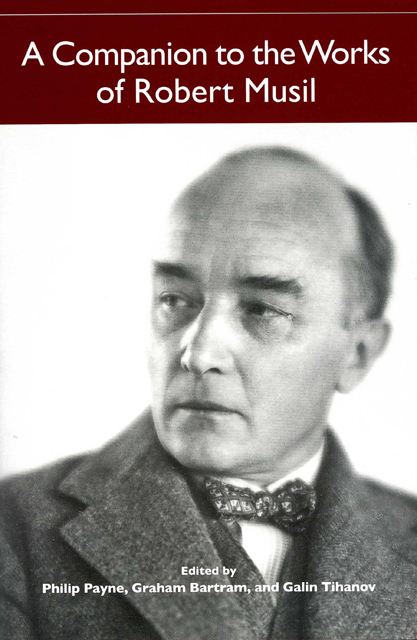Book contents
- Frontmatter
- Dedication
- Contents
- Preface
- Acknowledgments
- List of Abbreviations
- Musil's Principal Works
- Miscellaneous Frontmatter
- Introduction The Symbiosis of Robert Musil's Life and Works
- Musil's Life: Experiences, Reflections, Emotions of an Intellectual
- Literary Works before Der Mann ohne Eigenschaften
- Perspectives on Der Mann ohne Eigenschaften
- Select Bibliography
- Robert Musil's Life: A Chronology
- Notes on the Contributors
- Index
2 - Robert Musil's Diaries: Medium between Life and Literature
Published online by Cambridge University Press: 15 March 2023
- Frontmatter
- Dedication
- Contents
- Preface
- Acknowledgments
- List of Abbreviations
- Musil's Principal Works
- Miscellaneous Frontmatter
- Introduction The Symbiosis of Robert Musil's Life and Works
- Musil's Life: Experiences, Reflections, Emotions of an Intellectual
- Literary Works before Der Mann ohne Eigenschaften
- Perspectives on Der Mann ohne Eigenschaften
- Select Bibliography
- Robert Musil's Life: A Chronology
- Notes on the Contributors
- Index
Summary
Musil's Diaries were Crucial to his literary output. This is recognized by Sibylle Deutsch: “Musil's diaries [are his] intellectual potential […] the foundation on which he bases his literary production.” However, despite the exemplary edition by Adolf Frisé with its companion volume of extensive notes and related extracts, the diaries have not been given the attention they deserve. I shall concentrate here on the vital period from 1911 to the early 1920s during which Musil, having turned down the opportunity of a university career in order to devote himself to writing, began to focus on the composition of what was to become Der Mann ohne Eigenschaften. In these years Musil was at the height of his intellectual and creative powers and, though he had not begun intensive work on his major novel, most of the main characters — Walter and Clarisse, Moosbrugger, Diotima, Leona, Bonadea, Agathe, Arnheim — and the subplots associated with them, were in place as early as 1913. One might argue that Musil's prose in the latter years of his life was more harmonious and allusive, but in terms of energy and originality, the writing of this earlier period remains unsurpassed. In what follows I shall discuss how the diaries relate to this developing literary enterprise.
The diaries range over many themes of which the following are among the more important: love and sexuality; the realm of the transcendental, which Musil views with both fascination and skepticism; the interplay ofemotions and ideas. Some entries provide a record of social activities from Musil's life as a promising author deeply involved in the cultural life of Berlin and Vienna, but not as famous, or as systematic and disciplined in his approach to work as, for example, Thomas Mann. Franz Kafka's diaries similarly record his involvement in the cultural life of Prague, but their author is almost pathologically self-absorbed. Musil's diaries range from the recording of day-to-day events, abstract reflections on reading matter across a wide span of intellectual interests, to original ideas of his own, plans for literary projects, and drafts for novels and plays.
- Type
- Chapter
- Information
- A Companion to the Works of Robert Musil , pp. 87 - 116Publisher: Boydell & BrewerPrint publication year: 2010

